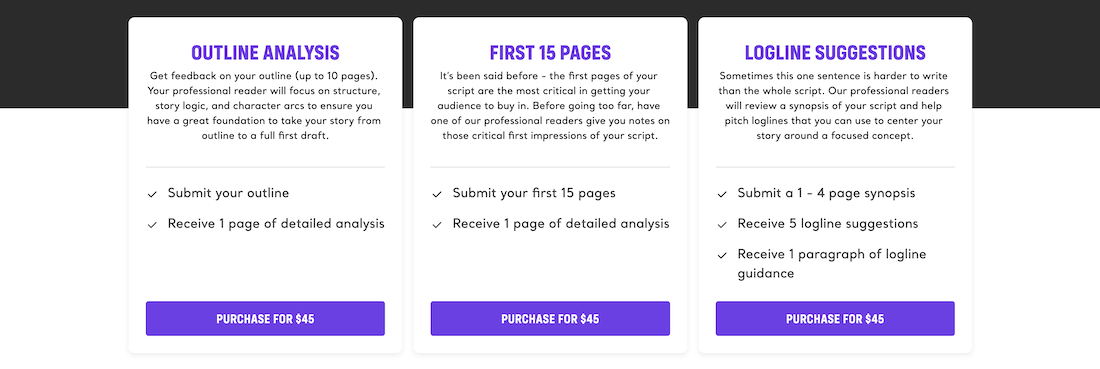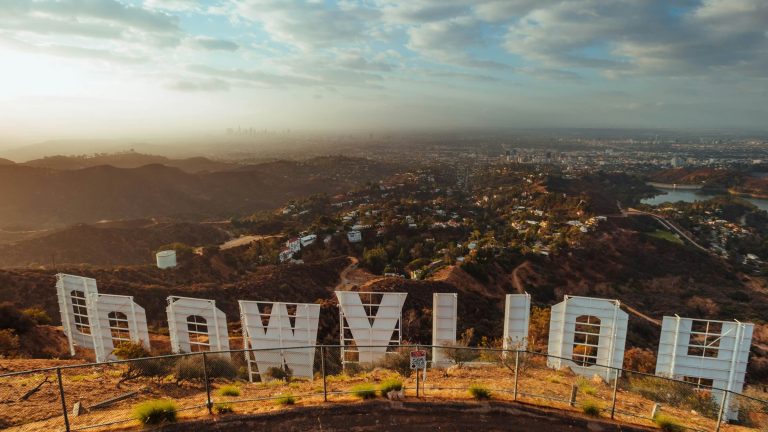5 Ways to Prove You're a Collaborative Screenwriter to Hollywood

Film and television are collaborative mediums. It only starts with the screenplay. Building your collaboration skills is essential not only to becoming a professional screenwriter but also to having the ability to sustain a long career in that position within the Film/TV industry.
Most of the screenwriting contracts in and out of the Hollywood system are assignments. Very few spec scripts sell. Even fewer are produced. Assignments are the bread and butter of a screenwriter's career.
And since the film and television industries are so collaborative, you need to prove that you are easy to collaborate with during an assignment.
With that in mind, here are five ways you can develop and showcase excellent collaborative skills.
5 Ways to Prove You're a Collaborative Screenwriter to Hollywood
1. Check Your Ego at the Door
Ego is poison. And it will spread into every aspect of your collaboration with development executives, producers, directors, managers, and agents. These are the people that can and will make or break your career in the industry.
While Hollywood does have a reputation for big egos, you would be surprised how humble and collaborative many are in the industry. And those that do showcase big egos usually have the power to do so. You don't want to go head-to-head with the decision-makers on that front. You need to be humble, appreciative of the job, and keep your ego in check:
- You're not the next Aaron Sorkin or Quentin Tarantino
- Your scripts are not the second coming of theirs either
- Your ego will not hide what every screenwriter has faults
Ego will do you no good in general meetings, note sessions, or through the general collaborative process of development, writing, and rewriting with Hollywood decision-makers. It will only get you replaced—quickly.
2. Confidence Over Ego
Even if you have the work to back it up, ego means nothing more than:
- Difficult to work with
- Won't accept notes
- Probably best to go with the friendly and appreciative screenwriter we met yesterday
Confidence is desirable. They want to work with people who know their craft and have confidence in their work. Most of the development executives, producers, and managers you speak with are just like you — they love and have a passion for movies and television. Display the passion you have, showcase your ability to collaborate, and portray yourself as someone they would love to work with.
And when it's time to get to work, they're going to need someone confident in their abilities.
- They won't have the time to hold your hand through the process
- They need someone that can make fast decisions
- They need to believe that you're the screenwriter they can rely on
Ego is poison. Confidence is a must.
Read More: Finding Belief and Confidence in Yourself as a Writer
3. Remember That Notes are Not Feedback to Consider
When writing on paid assignment—or even working on a paid second draft of your spec script that you were lucky enough to sell—notes from development executives, producers, and directors are not feedback.
The hard truth is that notes are usually non-negotiable. And they are also usually objective. Your employers want or need to have certain scenes, sequences, story arcs, and character arcs within the story.
Notes may be for:
- Having a more marketable script
- Being more accessible to a niche audience they are targeting
- Fitting better with a particular star that they are trying to attach to the project to draw in more distribution and box office numbers
- Budget and location reasons
- The creative wants and needs of the producer or director
Applying these notes is part of the job you're being paid for when you're under contract. You can and should defend your opinion as the hired screenwriter, but make sure you choose your battles wisely and be ready to concede.
4. Solutions Over Reactions to Notes
If you want to be a pro, you're going to need to quell your emotional reactions to the notes you receive:
- Notes are part of the job
- Applying them is a must
- They are inescapable
You're going to receive notes for:
- Synopses and treatments during early stages of development
- Outlines deep within the development processes
- Multiple drafts of the script
And here are some other sure things when it comes to the notes you'll get:
- You will receive notes that are counterintuitive to the narrative, story, and characterization
- You will receive notes that will cause a ripple effect throughout the house of cards that is your script
- You will receive notes that seem unnecessary, unwarranted, and unwanted
Most screenwriters—novice or professional—usually finish a draft thinking it's near-perfect. It's not. Remember, it's a collaborative medium.
- If you have made mistakes or missteps in your draft (you will), they will need to be addressed.
- If the development executives, producers, line producers, and location scouts need you to make objectable changes, you'll need to do it.
- If the producer and director have story, character, and dialogue changes that they want to be applied, it'll be expected of you to apply them.
- If there are story and character issues, plot holes (whether you agree that they are plotholes or not), and other elements that need to be fixed, it will be on you to come up with solutions.
It's natural to have emotional reactions to request changes that you either don't agree with or affect the visualization you had in your head. That's part of the job. What you don't want to do is react to them in your correspondence. Instead, just take some time to let the notes sink in and utilize the confidence in your abilities to come up with solutions rather than reactions.
Reactive responses include:
- "This is why I did that..."
- "I did that because..."
- "It won't work if I change this..."
- "If I change this, it will affect the..."
Solution responses include:
- "I can make that work..."
- "The initial intention was this, but I can do it this way and accomplish the same thing..."
- "I'll have to change this and that, but it will fall into place..."
- "I didn't think of that way, so I can actually tackle it like this..."
It's so important to respond with solutions and not defensive emotional reactions. That's the true sign of a professional and collaborative screenwriter.
Read More: 4 Tips for Handling Writing Critiques and Taking Notes
5. Choose Any Battles Wisely (And Give Them Options While Doing So)
Remember that they're also paying you because of your proven abilities as a screenwriter. The worst kind of collaborator—beyond the overly egotistical one—is one that puts their head down and submits on every whim.
- If you believe they are missing something important in a note, you should address it.
- If a note counters what their communicated intentions, wants, and needs were, you're helping them by pointing it out.
- If a note derails anything major when it comes to the story or characters, you should point it out.
But you need to choose those battles wisely. There's a big difference between doing things how you would prefer and doing things for the better of the project. The powers that be know what they need and want. You have to play within that sandbox. However, you sometimes need to save them from themselves as well.
Before you question any notes, you need to ask yourself:
- Is this really worth the hassle?
- Is this really a big deal?
- Is this really something that needs to be challenged?
- Is this really a note that affects the story or characters in a major way?
Here are some examples of battles not worth fighting:
- If they want a scene to take place in a different type of location due to their budget or location constraints, it's not worth the trouble of challenging that note.
- If they want dialogue changed for whatever reason, it's usually not a battle you need to fight.
- If they want a scene or sequence taken out, it's often either overly redundant or because of budget.
Notes aren't feedback. 99% of the time, it's best to just be collaborative by applying them as requested.
But if that 1% is worth a battle, the big thing to remember is that if you're going to question a note, you always need to offer three things in your response:
- The intention of the way you wrote what is in question
- The repercussions of the change they are requesting (and they better be huge)
- And options that they can consider
The options part is the most important. Collaboration sometimes entails middle ground and compromise. You don't hold much power in this scenario. However, you can showcase your collaborative skills by giving them options to consider. You can slyly get your way by meeting their wants and needs intended in the note.
But remember, you can only question something once. If they review your intentions, the repercussions, and the options given to them and still want the note applied as originally requested, then it's time to let it go and use your skills to make it all work.

---
Check your ego at the door, display confidence in yourself and your screenwriting abilities, understand that notes aren't feedback and must be applied, respond with solutions over emotional reactions, and choose your battles wisely when questioning notes while offering them middle ground options—that's how you can prove that you're a collaborative screenwriter.
Read More: The Greatest Impediment to Your Screenwriting Career Might Be... You
Check out our Preparation Notes so you start your story off on the right track!

Ken Miyamoto has worked in the film industry for nearly two decades, most notably as a studio liaison for Sony Studios and then as a script reader and story analyst for Sony Pictures.
He has many studio meetings under his belt as a produced screenwriter, meeting with the likes of Sony, Dreamworks, Universal, Disney, Warner Brothers, as well as many production and management companies. He has had a previous development deal with Lionsgate, as well as multiple writing assignments, including the produced miniseries Blackout, starring Anne Heche, Sean Patrick Flanery, Billy Zane, James Brolin, Haylie Duff, Brian Bloom, Eric La Salle, and Bruce Boxleitner, the feature thriller Hunter’s Creed, and many Lifetime thrillers. Follow Ken on Twitter @KenMovies
Get Our Screenwriting Newsletter!
Get weekly writing inspiration delivered to your inbox - including industry news, popular articles, and more!






























